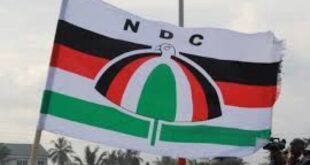INTRODUCTION
On the 28th of February, 2024, the Parliament of Ghana passed the Proper Human Sexual Rights and Ghanaian Family Values (“Anti-LGBTQ”) Bill. The Bill is yet to be forwarded to H. E. the President for assent. The passage of the Bill has triggered reactions from some of Ghana’s Development Partners, International Financial Institutions and CSOs in the country.
This paper considers the economic impact of the Bill, which factual view backed with a numerical presentation of the financing implications, has been missing in the barrage of moral, social and legal opinions that have been aired following the passage of the bill.
Impact on World Bank funded programmes
- The expected US$300 million financing from the First Ghana Resilient Recovery Development Policy Operation (Budget Support) which is currently pending Parliamentary approval might not be disbursed by the Bank when it is approved by Parliament;
- On-going negotiations on the second Ghana Resilient Recovery Development Policy Operation (DPO) for budget support amounting to US$300 million may be suspended;
- On-going negotiations for US$250 million to support the Ghana Financial Stability Fund may be suspended;
- Disbursement of undisbursed amounts totaling US$2.1 billion for ongoing projects will be suspended; and
- Preparation of pipeline projects and declaration of effectiveness for two projects totaling US$900million may be suspended.
In total, Ghana is likely to lose US$3.8 billion in World Bank Financing over the next five to six years. For 2024, Ghana will lose US$600 million budget support and US$250 million for the Financial Stability Fund. This will negatively impact Ghana’s foreign exchange reserves and exchange rate stability as these inflows are expected to shore up the country’s reserve position.
Impact on the Implementation of the 2024 Budget
The potential loss of these financial resources will create a financing gap in the 2024 budget that the government must address through additional domestic revenue mobilisation and a significant reduction in expenditure. Failing this, Government’s ability to achieve the targets in the 2024 Budget will be undermined and the IMF-ECF Programme is likely to be derailed.
Impact on the IMF Programme
While no direct conditionality in the IMF-ECF Programme relating to the passage of the Bill has been identified, the principles of the current IMF-ECF Programme are built on predictable financing from Development Partners (Financing Assurances) including the World Bank funded Ghana Resilience Recovery Development Policy Operations (DPO). Hence the non-disbursement of the Budget Support from the World Bank will derail the IMF programme, which puts Ghana at risk of ultimately losing out on US $720 million which would have been disbursed after the second and third review. This will in turn trigger a market reaction which will affect the stability of the exchange rate.
Impact on Debt Restructuring Programme
Negotiations with the Official Creditor Committee (OCC) and Eurobond holders under Ghana’s debt restructuring programme is predicated on the success of the IMF programme. Hence, a derailed IMF programme will have dire consequences on the debt restructuring exercise and Ghana’s long term debt sustainability.
Possible adverse reaction from Bilateral Partners
Some of Ghana’s bilateral partners including the USA have already reacted to the passage of the bill, indicating that it would have a negative impact on their trade and financing cooperation with Ghana. Others are yet to comment. There is the need to carefully manage these bilateral relationships given their support for the debt restructuring and Ghana’s development financing.
CLOSING THE GAPS
- Government must pursue:
- a vigorous revenue mobilization drive focusing on implementation of approved measures as well as drastically improving tax compliance and administration;
- expenditure rationalisation to accommodate the shock from the potential withdrawal of resources; and
- a change in the structure of our resource mobilization, leveraging the Ghana Beyond Aid principles. As a nation, we must improve our domestic resource mobilization efforts, working towards achieving our medium-term tax revenue to GDP target of 17%-18%.
CONCLUSIONS
It is possible for Ghana to leverage enhanced revenue mobilization, expenditure rationalization, and strategic resource mobilization, to plug the financing gap that may result from the passage of the Bill. However, this will not be an easy path in the short term, given the significance of the amounts at stake and the importance of the upcoming disbursements for immediate budget support. This is against the backdrop of recent macroeconomic vulnerabilities and the cascading effect of exchange rate volatility on prices of goods and services and inflation.
Further, the success of this path will depend greatly on stronger revenue mobilization and expenditure cuts; hand-in-hand policy directions which have evoked very strong reactions from Ghanaians in recent times.
Taking a long-term view, the passage of the new Bill ultimately calls for the strengthening of domestic and African financing sources, as well as the re-engineering of our development journey in partnership with other countries. In line with the Ghana Beyond Aid Agenda, Ghana can navigate the complexities of international relations and emerge with a robust, resilient economy characterized by greater Ghanaian autonomy concerning the financing thereof.
 Radio1Ghana Serving Communities
Radio1Ghana Serving Communities










